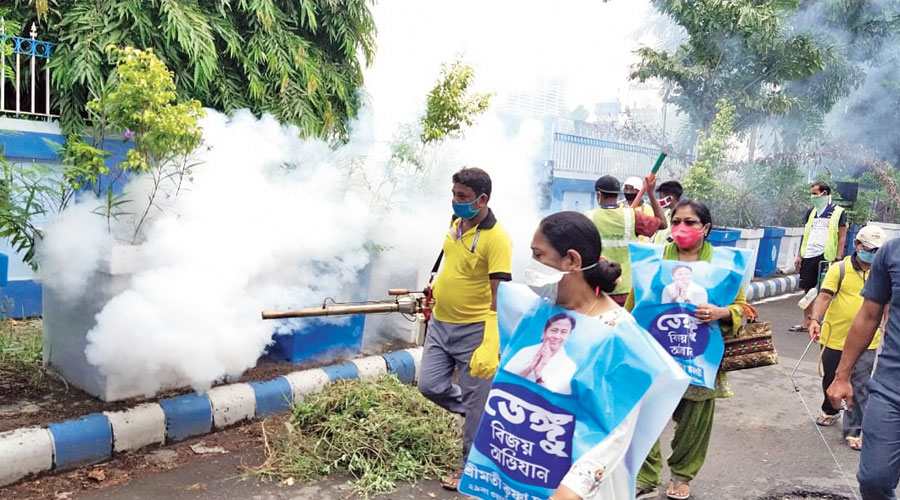Dengue cases are rising sharply in Salt Lake, New Town and Rajarhat. Nearly 300 cases have been reported in the last seven days from the Bidhannagar Municipal Corporation (BMC) area and adjoining places, officials said.
BMC officials said 185 dengue cases were reported from the 41 wards of the civic body in a week till Sunday.
A senior official of the New Town Kolkata Development Authority (NKDA), which provides civic services to New Town, said at least two residents had tested positive for dengue in the past week.
In parts of Rajarhat that are outside the BMC area, and under the Rajarhat gram panchayat, more than 100 cases of dengue have been reported in the past week. The affected neighbourhoods include Patharghata, Jyangra, Hatiara and Bishnupur.
In Salt Lake, the worst-affected pockets include several blocks along the Kestopur canal and the Eastern Drainage Channel.
The blocks along the Kestopur canal from where fresh dengue cases are being reported almost every day include AE, BE, CE, SA and W.
“Besides these places, a high number of dengue cases are being reported from ED, EE, DL, IC and KB-KC blocks, which are close to the Eastern Drainage Channel,” a BMC official said.
Infection clusters have been spotted in Chinar Park, Kaikhali, Arjunpur and Teghoria, where several households have multiple family members down with the mosquito-borne disease.
Banibrata Banerjee, mayoral council member in charge of health, said civic teams were spraying larvicide and conducting door-to-door visits to check for accumulated water in garages and other areas.
“We are also sending letters to government offices and housing complexes asking them to ensure their surroundings are clean and requesting them to prevent accumulation of water on their premises,” said Banerjee.
A senior NKDA official said they regularly spray larvicide in gully pits of New Town and send teams to housing complexes as well as cooperative societies to spray larvicide and check whether water is accumulating on the premises.
“We are also regularly cleaning up empty plots,” the official said.
The dengue-causing Aedes ageypti mosquito can breed in a very small pool of water and public health experts have warned that the current weather condition — marked by short spells of rain interspersed with dry periods — gives birth to mosquito-breeding sites.
